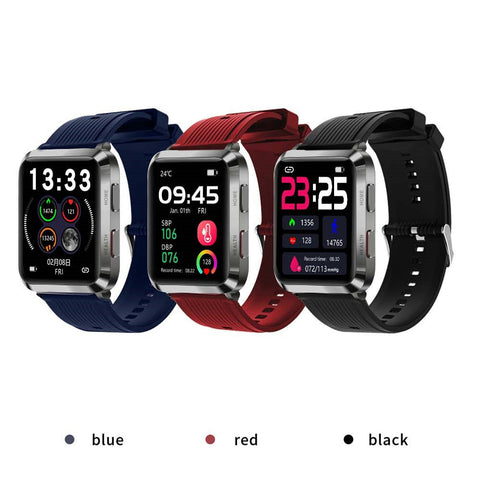Enhancing Sleep Quality: Adjusting Your Circadian Rhythm
Dec 20, 2023
Smart Watch with Sleep Tracking
A well-regulated circadian rhythm is crucial for quality sleep and overall well-being.
This blog post focuses on practical strategies to adjust your circadian rhythm and improve sleep quality. Understanding the importance of aligning our internal clock with natural sleep-wake cycles can help individuals establish healthier sleep patterns.
The Role of the Circadian Rhythm
The circadian rhythm regulates our sleep-wake cycle, hormone production, and other physiological processes. It responds to light and darkness, influencing our alertness, energy levels, and overall sleep quality. Maintaining a well-functioning circadian rhythm is essential for achieving restorative sleep and maintaining optimal health.
Establishing a Consistent Sleep Schedule
Maintaining a consistent sleep schedule is key to aligning your circadian rhythm. Go to bed and wake up at the same time every day, even on weekends. This regularity helps regulate your internal clock and promotes better sleep quality over time.
Light Exposure and Darkness
Exposure to natural light during the day and limited exposure to artificial light at night are crucial for regulating your circadian rhythm. Spend time outside during daylight hours, especially in the morning, to signal your body that it's daytime. In the evening, minimize exposure to bright screens and use dimmed lights to signal the transition to sleep.
Creating a Relaxing Bedtime Routine
A soothing bedtime routine can help signal your body that it's time to wind down and prepare for sleep. Establish rituals such as reading a book, practicing relaxation techniques, or taking a warm bath. These activities can help relax your mind and body, promoting a smoother transition into sleep.
Smartwatches and Sleep Optimization
Smartwatches equipped with sleep tracking features can provide valuable insights into your sleep patterns and circadian rhythm. They monitor sleep duration, sleep stages, and offer personalized sleep recommendations.
By leveraging this data, you can identify patterns, make adjustments to your sleep routine, and establish healthier sleep habits. Smartwatches can also provide gentle nudges to adhere to a consistent sleep schedule and offer features like guided breathing exercises or relaxation techniques to promote better sleep quality.

Aligning your circadian rhythm is essential for enhancing sleep quality and overall well-being. By establishing a consistent sleep schedule, managing light exposure, and creating a relaxing bedtime routine, you can adjust your internal clock for better sleep. Smartwatches with sleep tracking features can be valuable tools in optimizing sleep routines and providing insights into your circadian rhythm.
Let's embrace these strategies and utilize the capabilities of smartwatches to foster healthier sleep patterns and ultimately improve our overall sleep quality and well-being.











